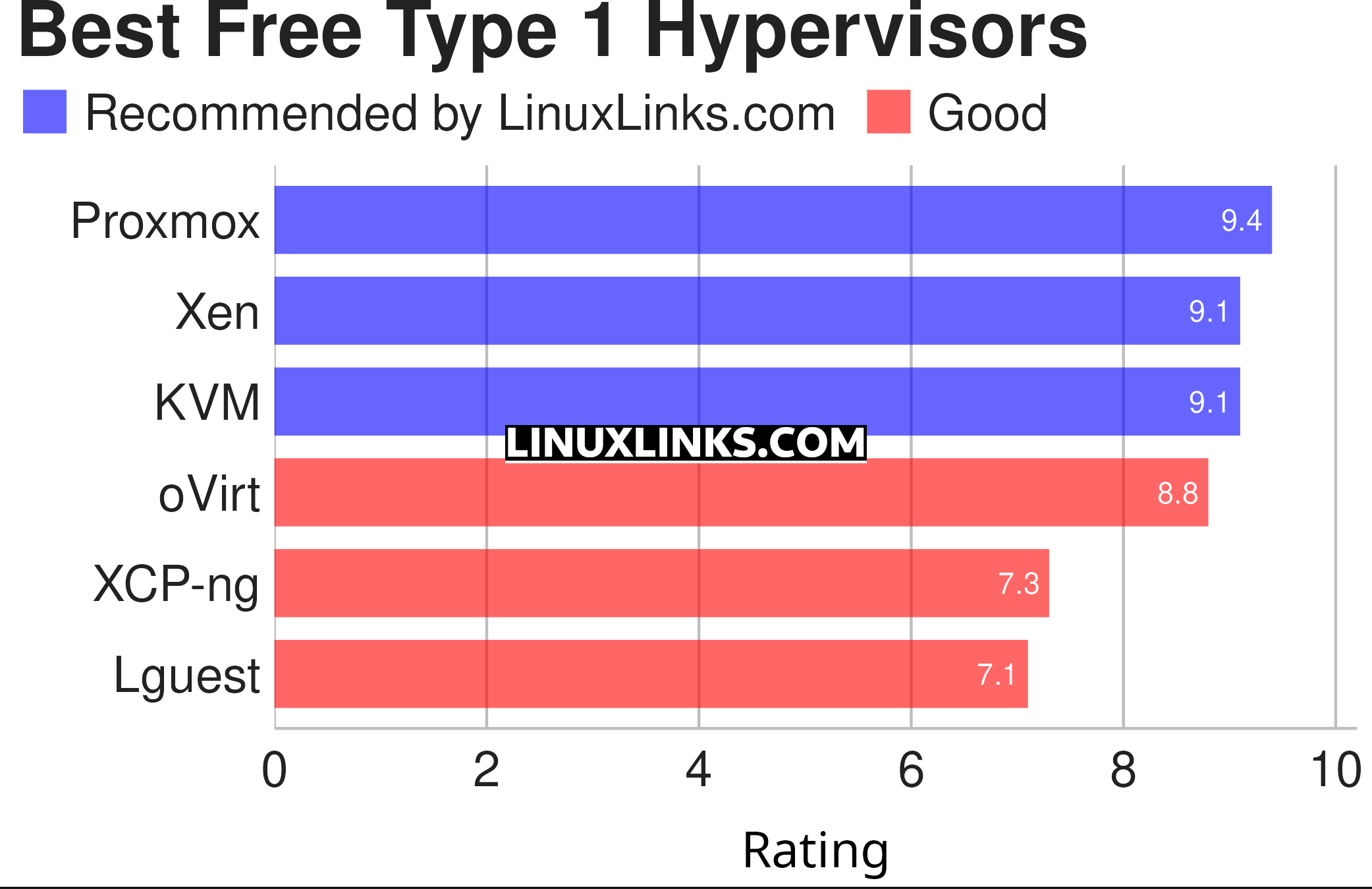Last Updated on February 26, 2025
A hypervisor (also known as a virtual machine monitor) is computer software that creates and runs virtual machines. The hypervisor performs the function of controlling the host processor and resources, determining their allocation to the guest operating systems. The hypervisor is a very practical way of getting things virtualized quickly and efficiently.
There are two types of hypervisor. A Type 1 hypervisor is known as native or bare-metal. With this type, the hypervisor runs directly on the host’s hardware to control the hardware resources and to manage guest operating systems. In other words, the software hypervisor does not require an additional underlying operating system.
The second type of hypervisor runs under a conventional operating system environment as a second layer, with the guest operating systems then running at the third level.
This article identifies the finest open source Type 1 hypervisors that are available to download without charge. Our recommendations are captured in the chart below.

Let’s explore the hypervisors at hand. Click the links in the table below to learn more about each application.
| Hypervisors | |
|---|---|
| Proxmox | Virtualization management platform |
| Xen Hypervisor | Fastest and most secure infrastructure virtualization solution |
| KVM | Full virtualization solution for x86 hardware |
| oVirt | Virtualization solution for your entire enterprise |
| XCP-ng | High performance enterprise level virtualization platform |
| Lguest | Little hypervisor designed for experimentation with virtualization |
This article has been revamped in line with our recent announcement.
 Read our complete collection of recommended free and open source software. Our curated compilation covers all categories of software. Read our complete collection of recommended free and open source software. Our curated compilation covers all categories of software. Spotted a useful open source Linux program not covered on our site? Please let us know by completing this form. The software collection forms part of our series of informative articles for Linux enthusiasts. There are hundreds of in-depth reviews, open source alternatives to proprietary software from large corporations like Google, Microsoft, Apple, Adobe, IBM, Cisco, Oracle, and Autodesk. There are also fun things to try, hardware, free programming books and tutorials, and much more. |
